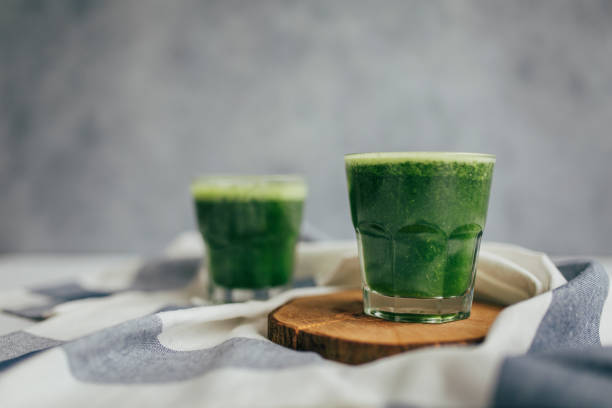They are everywhere. We’re familiar with them. Although juice fasts have been around for many years, we recently saw a rise in juice detox diets in social media, documentaries, and books. But why?
What can Juice Fasts do for you?
- Help determine food sensitivities
- Hydrate your body
- Repair your digestive system
- Promoting healthy eating habits and weight loss
- Get rid of all traces of toxic substances
- Boost your immune system
- Heart disease prevention
- Boost energy levels
- Increase overall health
- Give the body a “master cleansing.”
It’s simple to make your juice fast. But how can you do this safely? Before you jump into a liquid quickly, here are some things to consider:
People who should avoid fasting from juice:
- Young children
- Women who are pregnant
- Senior adults
- People with low blood sugar and weak immune systems
Here are some tips to help you succeed.
PREPARE FOR THE FAST
It would help if you prepared yourself before you jumped into a juice fast. You may feel sick if you start your fast with a poor diet. We recommend you change your regular diet to one with more raw fruits and vegetables to prepare for your fast correctly. It is important to eat smaller meals than you usually do and eat only what is necessary to satisfy your hunger. Regular, easy-to-do exercise should be part of your daily routine. You should also drink enough water to flush out toxins from your body. By preparing for your fast, you can reduce side effects such as fatigue, extreme hunger, nausea, and fatigue.
PLANNING YOUR RECIPES
You can plan your recipes before your juice fast to ensure you are prepared for the cooking part. The Juicing Companion Book can be beneficial during this process. It can help you determine which fruits and vegetables will work best in your juicer and your health requirements. These ingredients have significant health benefits and can help you get started with your recipes.
Kale- Anti-inflammatory, helps arthritis and autoimmune diseases. Apples- Anti-inflammatory. Anti-inflammatory. Reduces inflammation, lowers blood cholesterol, and boosts energy
Ginger – helps in digestion and pain relief and improves the immune system.
Cucumber- Lowers blood pressure, promotes healthy hair, and prevents certain types of cancer.
CALORIC INTAKE
A juice fast can help you lose weight by reducing the calories in your diet. It sounds great. It can be dangerous to reduce your caloric intake. You should reward yourself for a long time when you have gone without your favorite foods. This mindset can prevent you from reaping the many benefits of your fast.
LACK OF PROTEIN
Protein is essential for our bodies to build and maintain muscle mass, feel full, and perform many other functions. Fruits and vegetables are low in protein, which can cause hunger and possibly decrease muscle mass. You can drink a homemade nut milk beverage (cashew, almond) as a substitute for your regular drinks. You can increase your protein intake by juicing dark green veggies. These raw vegetables are an example of how much protein is in 227g/8oz. ESHA Genesis nutrition data
- Kale: 7g protein
- Watercress: 5g protein
- Broccoli: 5g protein
- Baby spinach: 5g protein
- Cabbage: 3g protein
Go all in for the right cause.
It would help if you gradually worked through your juice fast before starting a liquid fast. You can replace your meal with fresh-pressed juice until you have eliminated all solid food. Slowly incorporating juice into your diet will prevent you from consuming too much and making your body feel deprived.
HYDRATION IS IMPORTANT
Hydration is key. It is essential to ensure that you are well hydrated while juice cleansing. Warm lemon water is recommended during a fast. Water will also help to fight hunger between juices.
WISELY CHOOSE YOUR FRUIT & VEGETABLES
Juice fasting is a good idea. Choose organic fruits and veggies because they contain fewer pesticides. Organic produce contains around 20-30% more antioxidants and half the amount of heavy metals than conventional produce. You should be aware of the pesticides in fresh fruits and vegetables when consuming only juice.
ROUTINE WORKOUT
While exercising is essential for any diet, juice fasting should be avoided as it can cause you to lose as much energy. Juice fasting is an excellent way to follow your instincts.
SLOWLY BREAK THE CLEANSE
You can slowly start to eat solid foods as you approach the end of your cleanse, usually after about one to three days. This can be done by drinking smoothies and eating watery fruits and soft foods like oatmeal. This is an excellent opportunity to revisit your goals for your juice fast. When introducing food back into your diet, it is essential to remember this information if you are trying to find out what foods you have intolerances to. Take your time and keep track of everything you eat so that you can pinpoint the problem areas. It would help if you continued to hydrate. This can be done by drinking green juice, lemon water, or herbal teas.



